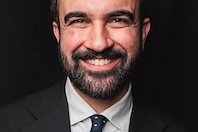Bishops' statement on Coronavirus and access to treatment

Source: CCN
With the escalation of the Coronavirus, demand on NHS resources is outstripping supply and those responsible for our care and well-being are facing challenging decisions. What may well be on all of our minds is what provision will be available if I, or a loved one, is in need of treatment and life-support in these circumstances. While we would all agree that the allocation of resources must be done as fairly as possible, the criteria of fairness must be clear and shared by us all. These principles apply both morally and in the law which governs our expectations and rights on health and social care.
As Catholics our starting point is that we are all made equally in the image of God (CCC 357). Human value is not a measure of our mental or physical capacity, our societal function, our age, our health or of any other qualitative assessment. God made each of us and in so doing gave us all equal dignity and value. This is never lost during sickness or dying.
It is important to bear in mind in any discussion of resource allocation and medical rationing when the tension between the appropriate treatment and scarcity of resources has, in most people's experience, never been so visible. A decision against offering a certain life-prolonging treatment to an individual must never be a judgement based on the worthwhileness of that person's life, including their age or other social characteristics, but a pragmatic decision about the likelihood of him/her benefiting from the intervention given their medical condition. This principle has been upheld in case law repeatedly and the NHS Constitution itself is clear that we should deliver care and support in a way that achieves dignity and compassion for each and every person we serve.
Until the current pandemic, resources have always been allocated according to medical need and benefit to the patient. Today this approach must be complemented by maximising scarce resources for the common good and so prognosis, and the likelihood of benefit becomes the overriding criteria.
People with underlying health conditions should discuss the sort of treatment they may want with their families so that good communication is possible in a crisis. Each of us may be presented with clinical scenarios which are both unwelcome and distressing, yet doctors are faced with making the least-worst decisions. This approach helps us to focus on the common good. Similarly, Catholics will focus on the benefit of a particular treatment for the person taking into consideration all medical factors. This, again, helps us to focus on the common good of all and best meets the principles of justice and equality.
Clear communication with the sick and their loved ones is essential throughout this process, and medical staff will need to deal sensitively with those affected. We pray for them as they strive to serve both the patient and our wider society in this time of need, and we thank them for their hard work and commitment. We must always be mindful of the spiritual care of patients and their families, as well as of health and social care staff. Our chaplains have a particular role in this regard, but we will all know someone for whom we can pray and offer support.
Bishop John Sherrington
Bishop Paul Mason
Bishop Richard Moth
Bishops' Conference of England and Wales


















